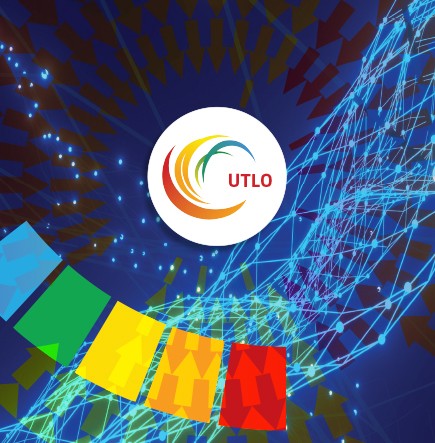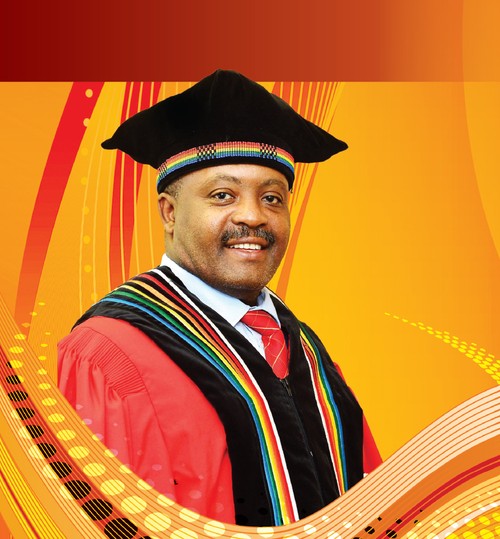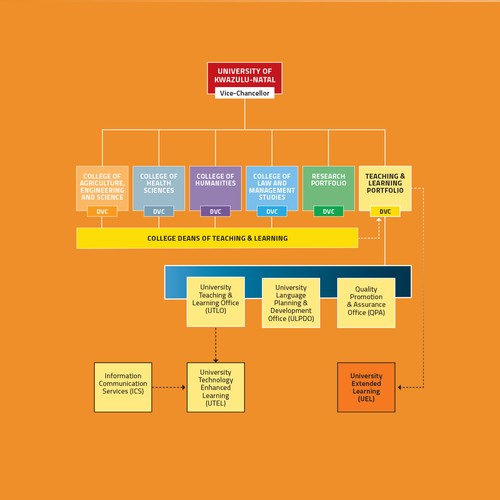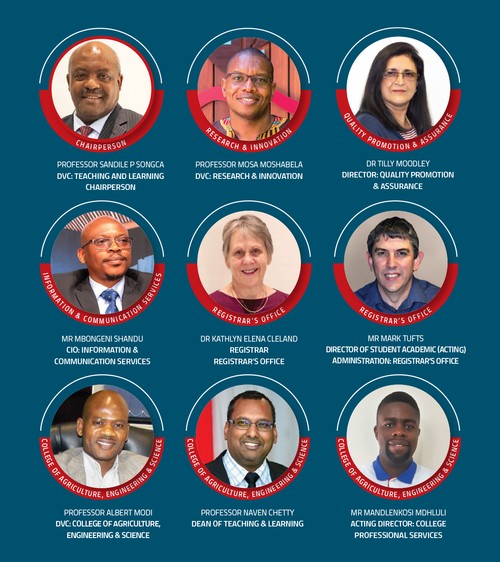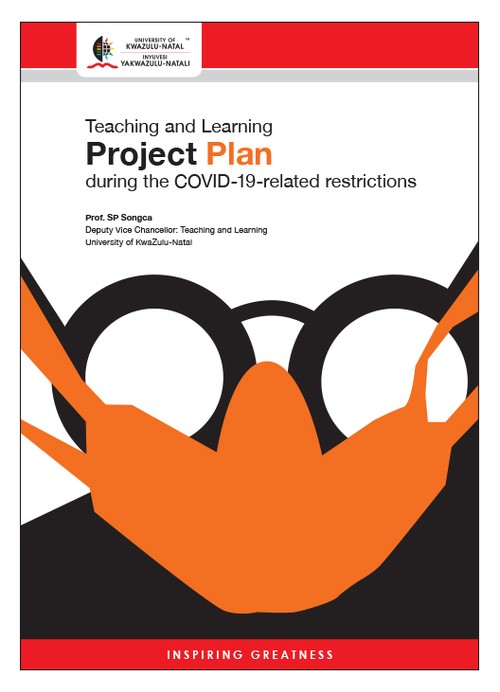The vision of the University Language Planning and Development Office (ULPDO) is to be the centre of excellence in the promotion, development and scientification of indigenous languages with specific reference to isiZulu. Its mission is to embrace and foster functional bilingualism at UKZN through the promotion of equitable use of the English language and isiZulu as provided for in the University Language Policy (2006 revised in 2014), currently under review.
Strategic Objectives of the ULPDO
- To promote the development of isiZulu to become a language of administration, teaching and learning, research and innovation while accentuating the role of English as a primary academic language.
- To promote, facilitate and oversee adherence to the statutory provisions in the development of technical terminology in isiZulu.
- To monitor and render quality translation, editing and interpreting services to the entire University community.
- To develop an isiZulu National Corpus and isiZulu Term Bank as important reservoirs for the development of robust Human Language Technologies (HLTs) and for posterity.
 Figure 17: UKZN IsiZulu Language Intellectualisation Programme
Figure 17: UKZN IsiZulu Language Intellectualisation Programme
UKZN Language Programmes
The ULPDO implements projects that aim to make a positive contribution to the development of isiZulu and African languages in general as enshrined in South Africa’s Constitution. The projects are funded by the University’s main fund and the DHET (UCDP) in line with the University’s Language Policy and Plan (adopted in 2006 and revised in 2014). The Language Policy is currently under review. The ULPDO adopted a set of goals in order to ensure the full intellectualisation of African languages, especially isiZulu.
- The following goals are directly linked to the language programme at UKZN:
- Excellence in teaching and learning
- Excellent and high impact research and innovation/entrepreneurship through language intervention
- Targeted internationalisation
- Social cohesion and community engagement
Implementation of the Language Policy and Plan by the ULPDO
The implementation of the University Language Policy and Plan has been anchored on the ULPDO’s core functions, namely, terminology development; social cohesion projects; research; and Human Language Technologies (HLTs), which include corpus building, language services, the term bank and mobile applications; literature development and transforming institutional policies to ensure the intellectualisation of isiZulu.
Terminology Development Project
This Project is at the centre of isiZulu intellectualisation since all services rely on it in order to ensure that isiZulu is indeed capacitated and fully developed. Despite the difficult conditions arising from COVID-19, much was achieved in the period under review in developing specific terminology for certain modules. Guided by the 2021 Terminology Development Project Plan, the Language Office implemented various workshops including three on Chemical Engineering (consultative, verification and standardisation) from 23 to 25 June, 31 August to 2 September and 24 to 26 November 2021. More than 276 terms were finalised. Towards the end of 2021, the Office adopted a blended approach using both online and physical meetings. However, committee members raised a few issues in respect of the challenges experienced and requested that these be raised in the relevant UKZN platforms e.g., the University Language Board (ULB). The issues included the unsuitability of an online workshop to deal with terminology, connectivity problems, human breaks and the time spent, comparatively speaking.
Human Language Technologies
Over the years the Office has developed and invested in a number of software applications including the term bank, mobile App, spell checker and isiZulu national corpus. It is currently engaged in revamping and updating the ZuluLex application. This process began in 2020 and is in its final stages, with deployment planned in June 2022. Other Apps like the spellchecker and term bank are periodically checked and updated. The Office continues to monitor and maintain these very important resources. It continues to clean and maintain its corpus project (oral corpus, corpus building and parallel corpus). To date, 139 hours, 35 mins and 57 secs files have been tagged and verified on the oral corpus; the IsiZulu National Corpus (INC) has reached 31 636 466 tokens and the parallel corpus has 37 441 sentences. A plan is in place to deal with all outstanding files.
Training and Development: Bilingual Tutorial
Training and development form the central part of ULPDO’s core mandate. Bilingual tutorials are currently the focus of the Office as they are a critical teaching and learning interventions. In 2021, the Office continued to work under COVID-19 conditions. It successfully hosted virtual bilingual tutorial trainings, with three training workshops conducted, with Health Sciences, Computer Sciences and Education on 10 to 11 June, 9 to 10 September and 21 to 22 October 2021, respectively. The facilitators from the discipline of Language in Education in the School of Education have been steadfastly dedicated in this regard. Sadly, one of its pioneers Professor Thabisile Buthelezi passed away in April 2022. May Her Soul Rest in Peace.
The objectives of bilingual tutorial training are:
- To train tutors in bilingual tutoring,
- To impart knowledge on the UKZN language policy and plan,
- To standardise bilingual tutoring at UKZN, and
- To make isiZulu the language of teaching and learning.
Doctoral Rule 9 Project
From its inception, certain parts of this work have been online; e.g., abstracts are submitted via e-mail and are kept on the Translation Management Tool (TMT) which is hosted by the University server and monitored and evaluated by the ULPDO. However, some parts were originally physical such as the translation retreat and training. After meeting stakeholders, a decision was taken to change the work flow so that it suits everyone concerned. Thus, the entire Project is now online and abstracts are now sent by the Colleges to library services. An impressive number of abstracts (139) has been completed and sent back to Colleges. The changes are represented in the following diagram:
 Figure 18: DR9 Workflow
Figure 18: DR9 Workflow
Language Services
The Office continues to provide language services to the entire University community, with demand increasing each year. The bulk of requests come from the Vice-Chancellor’s office, Humanities, Human Resources, Corporate Relations and lately, staff Unions. During the period under review, language services including translations, interpreting and editing, translated more than 100 documents, provided interpreting services in than 20 sessions and edited 50 documents.
Research Development and Coordination
The Office regards research as the cornerstone of language development and therefore prioritises training and development in this sphere. In the period under review, a seminar series was established as part of developing research and presenting skills in the Office. Staff members’ presentations are shaped by valuable comments received, positively contributing to successful presentations in various forums. The Office hosted three seminar series sessions in 2021; the joint Multilingualism Symposium between UKZN and the University of the Free State ; and papers were presented at the international African Language Association of Southern Africa (ALASA) Conference.
The Office hosted its 4th Biennial Language Research Symposium on 4 November 2021. The Symposium was hosted virtually in line with the University COVID-19 protocols and social distancing regulations. Its theme was “The Development of Innovative Applications in African Languages: Efficacy and Innovation”.
The theme was motivated by the fact that the COVID-19 pandemic was still very much part of life in 2021. The thematic strands were language policy and planning in Higher Education, HLTs, terminology lexicography and dictionary compilation, corpus and the indigenous language system and the language of teaching and learning, research and interventions.
A panel of experts was constituted as a ‘scientific committee’ to review abstracts using the established abstract review criteria. Nine abstracts were accepted and the programme booklet was developed and disseminated to all participants. The event was officially opened by the DVC: Teaching and Learning, Professor Sandile Songca, who welcomed participants and shared the University’s vision with respect to its Language Policy and Plan. He also appreciated the ULPDO for executing this mandate with distinction. Acting Director Dr Makhubu-Badenhorst introduced the keynote speaker Mr Chee Wai Mak, Project Manager at Western Digital Storage Technologies in Thailand. His presentation that focussed on HLTs as an important aspect of language development was well received and sparked meaningful debate. This was followed by the presentation of papers on a range of themes, with valuable feedback from participants who included students, academics and ULPDO staff members.
Mr Luke Vorster from the College of Law and Management Studies delivered the vote of thanks and closed the Symposium. Positive feedback from delegates noted that the programme ran smoothly and was informative. Suggestions for improvement included expanding the Symposium’s scope to cater for academics outside of UKZN. Table 5 below depicts achievements in 2021.
 Table 7: ULPDO Achievements in 2021
Table 7: ULPDO Achievements in 2021
Literature Development
The Office regards literature development as a fundamental pillar for the intellectualisation of South African languages. Since 2013, a number of publications have been produced in collaboration with the UKZN Press. During the period under review, two important publications were finalised, namely, isiZulu Orthography and isiZulu women’s short stories.

Title: Ukuvamisa imithetho yokubhala Nobhalomagama LwesiZulu Lonyaka wezi - 2021
Editor: Professor AM Maphumulo
Published: 24-02-2021
Overview: 2021 isiZulu Standardisation, spelling rules and orthography is a revised and improved version of the 2008 edition. The book includes the history and beginning of the development of isiZulu spelling rules and orthography and highlights the role of isiZulu academics and missionaries in the development of isiZulu writing. There are detailed chapters on spelling rules and orthography, place names, editing and proofreading. Writing symbols, phonetics, capitalisation this edition further explains the technique for the creation of new terms, rules for translation, interpreting and writing of dictionaries. There is also a chapter that deals with the problems of language usage in the media , especially isiZulu words that are easily confused with other words and unnecessary usage of borrowed words instead of existing terms. Other chapters deal with the development of spelling rules and orthography in the isiZulu Bible; Zulu people’s perception of time, days, months, and the involvement of technology in the development of isiZulu language. This up-to-date book will be invaluable to various and professions where isiZulu is used.

Title: Labhoboka ithumba
Editor: Phindile Dlamini
Published: 24-02-2021
Overview: 2021 Leli yiqoqo lezindaba ezimfishane eziwumsebenzi wababhali besifazane abasengamathwasa ekubhaleni. Lo ngomunye womphumela wemisebenzi wehhovisi leNyuvesi YakwaZulu-Natal Lokuhlelwa Nokuthuthukisa Kolimi, leli hhovisi liphonsele ababhali besifazane inselelo ukuba nabo baphonse itshe esivivaneni, libonakale igalelo labo futhi kuzwakale nelaka labo. Lo msebenzi uwumphumela wokuthi abesifazane bayamukele le nselelo. Ababhali besifazane ngezindikimba ezibathinta ngqo, esingabala kuzo: uthando, ukuhlukunyezwa kwabesifazane, imfundo, amalungelo, ubuthakathi, ukubulawa kwabantu abaphila nebala elimhlophe, isiko, udlame lwasekhaya, nezinye. Kulo msebenzi abantu besifazane sibabona bethole ithuba lokuphefumula ngokusezifubeni zabo. UDtk Phindile MaMsomi DLamini ufundisa enyuvesi yaKwaZulu-Natali. Usebhale izincwadi zabantwana ezingaphezu Kwamashumi amathathu. Ezinye zalezi zincwadi zifundwa ezikoleni kanti ezinye zihunyushelwe olimini lwesiNgisi nolwesiXhosa
Implementation of the Language Policy and Plan by Colleges
The College of Humanities has been the only College to consistently submit a written report on its implementation of the Language Policy and Plan. The Policy recognises the need to develop and promote proficiency in the official languages, particularly English and isiZulu. The College of Humanities’ report on activities aligned with the UKZN Language Policy (2014) flags activities that seek to promote the use of isiZulu as a medium of instruction as well as the language of administration within the College.
College Language Services:
Academic/Support Service
- New Projects / Activities: National Institute for the Humanities and Social Sciences (NIHSS) Funded Project: Intellectualisation of isiZulu in four selected Universities in the province of KwaZulu-Natal. Professor Hlongwa is a principal investigator in this project and is collaborating with team members Dr Sbusiso Ntuli (UNIZULU); Dr Phindi Dlamini (UKZN); Dr Gugu Mazibuko (UKZN); Dr Hloniphani Ndebele (MUT); Dr Nontobeko Buthelezi (UKZN); Dr Sibonsile Zibane (UKZN) and Dr Sylvia Zulu (DUT). The project has a budget of R800 000 for the following outputs:
- Project 1 – Publication of a special issue of the journal Alternation
- Project 2 – Creating a bilingual English-isiZulu curriculum
- Project 3 – Online dictionaries Project 4 – Training and capacity building.
As part of Project 1, a call was made for the special issue of Alternation focusing on the intellectualisation of African languages in Higher Education. As part of Project 2, the translation of the book by Magoge B Ramose entitled African Philosophy Through Ubuntu is complete and the publication process has commenced. The College also translated the book Introduction to Music Fundamentals A that is used to teach music as part of the bilingual project to support Dr Bethke who is already using bilingual teaching.
European Union-funded Erasmus+ projects: Boosting the Use of African Languages in Education: A Qualified Organized Nationwide Development Strategy for South Africa (BAQONDE). BAQONDE activities are underway under the leadership of Dr Lolie Makhubu-Badenhorst, Dr Gugu Mazibuko and Professor Nobuhle Hlongwa. This three-year project runs from 2021 to 2023. Dr Makhubu-Badenhorst, Dr Mazibuko and Professor Hlongwa attended the BAQONDE meeting and relevant subcommittee meetings in July, August and September 2021. Dr Makhubu-Badenhorst coordinates UKZN activities, Dr Mazibuko serves on the Dissemination Subcommittee and Professor Hlongwa is a member of the Quality Assurance Subcommittee. An urgent process that needs to be completed is a needs analysis that will enable UKZN to deliver on Work Packages 2 and 3 as per Project Plans. This will require all the Colleges to work with the lead team to identify those who will receive training on multilingual pedagogies.
Translation of Module outlines Translation of all the modules in the six Schools including School of Arts, Applied Human Sciences, BEDS, Education, RPC and Social Sciences is currently in progress. The College representative, Professor Hlongwa on the ULB is consulting with all the language champions and Deans of Schools.
School of Arts In line with UKZN’s Language Policy (5.4 – Promotion of bilingualism/multilingualism in institutional policies and practices), in 2020 the College of Humanities reported that there was collaboration across disciplines. African Languages joined forces with Linguistics to produce a Language and Linguistics Multidisciplinary glossary list. Fortunately, ULPDO has an existing lemma list for Linguistics which was shared with the team to fast-track the process.
School of Religion, Philosophy and Classics In 2021, a Classics student registered for a Master’s degree in isiZulu mother tongue. The topic is interdisciplinary and combines isiZulu and Classics. Another student isiZulu student has also registered for Latin 1 and Dr Steinmeyer will test her teaching approach to establish parallels between isiZulu and Latin grammar and therefore facilitate learning for isiZulu students.
Chinese-isiZulu Learners’ Dictionary The launch of this pioneering dictionary was delayed due to some challenges. This is a DUT Confucius Institutite and UKZN School of Arts collaboration.
Bilingual Teaching & Learning:
Bilingual Assessment
- School of Arts The Discipline of Music continues with bilingual assessment that was introduced in 2020. Positive feedback was received from students and the marks they scored attest to this, confirming the positive effect of bilingual teaching and learning.
- Research and Publications
More postgraduate students are opting to write their research in isiZulu. The Disciplines are compiling a submission highlighting areas that cause problems/delays which need to be addressed in order for the research system to be favourable to all. The ULPDO worked with colleagues within African Languages to produce two publications. The first is isiZulu Standardisation, Spelling Rules and Orthography. Students writing in isiZulu need to be workshopped on these new rules. These will also be incorporated in other isiZulu modules where relevant. Dr Phindi Dlamini published her book entitled Avoiding Potholes in Translation that was launched on 21 March 2021 as part of the Time of the Writer Festival.
Professional Services Sector
This sector plays a pivotal role in the implementation of the Language Policy and Plan. Progress is monitored in various sectors in professional services including Student Services, Human Resources, Corporate Relations, all Colleges, Teaching and Learning, and ICS. Language champions for each sector meet regularly to discuss and map a way forward that culminates in the institutional report in the Professional Services Board.
In terms of language services, much work is being done to translate and/or edit documents including communiques, particularly for Corporate Relations, Student Services and Human Resources whilst interpreting work is mainly related to HR disciplinary hearings and UKZN Professional Services events.
With reference to HLTs, the ULPDO and ICS are collaborating to develop and maintain technologies in relation to the implementation of the Language Policy and Plan.
Student Services and the ULPDO are promoting social cohesion through language programmes such as the Bua Le Nna (Let’s Talk) project that teaches conversational Sesotho to students in certain UKZN residences. All these projects and activities have made a positive and meaningful contribution to the implementation of the Language Policy and Plan.
Stakeholder Relations
International Translation Day
As part of strengthening stakeholder relations UKZN through the ULPDO participated in the 1st International Translation Day Colloquium on 30 September 2021 which was hosted virtually by the Department of African Languages at Rhodes University in collaboration with South African Translators Institute (SATI), on the theme “Teaching, Researching, Translating and Interpreting during the COVID-19 Pandemic: Challenges and Lessons Learnt”.
ULPDO Director Dr Makhubu-Badenhorst was invited to deliver a keynote address which focussed on the role of translation in advancing the intellectualisation of African Languages. She identified the challenges encountered during the pandemic and offered suggestions on how to advance the process of translating, interpreting, and editing during this difficult time. She also highlighted the role of research in language services.
During the panel discussion, the panellists concurred with Dr Makhubu-Badenhorst and emphasised the importance of speeding up machine translation. The Colloquium was a major success, with participants requesting that it be held annually.
SASL Webinar
As part of recognising the multilingual nature of South African society and appreciating the deaf community, as well as marking September as the International Month for Deaf People, ULPDO hosted a SASL webinar on 22 September 2021.
The Webinar went well apart from minor glitches caused by connectivity. Like all projects, there is room for improvement, especially when it comes to webinars attended by deaf people. As a follow-up on SASL matters, the ULPDO collaborated with the Disability Unit to organise a workshop for SASL interpreters that was planned for November 2021.
Multilingualism Symposium (UKZN and UFS)
UKZN continues to build, maintain and nurture synergistic relations with new and established partners. It does so in appreciation of the overarching principle of multilingualism enshrined in the Constitution of the Republic of South Africa, which bestows the responsibility of developing indigenous languages on various stakeholders. To this end, the ULPDO forged a partnership with the University of the Free State. The two institutions co-hosted a mini-symposium on 22 June 2021 to share their experience and expertise and discuss synergies and projects of mutual interest.
CoPAL Meeting
The University participated in a virtual meeting of the Community of Practice for the Teaching and Learning of African Languages (CoPAL) on 8 June 2021. The programme included sharing language policies and plans by various Universities in the Country. The ULPDO director shared the UKZN Language Policy and Plan and the Office’s activities.
Conference Attendance
UKZN continues to participate in various conferences on African languages development. In the period under review, four staff members including the ULPDO Director presented papers at the ALASA 18th international Hybrid Conference from 25 to 27 September 2021 that was co-hosted in East London by the University of Fort Hare. The Conference was a hybrid one with some delegates physically attending whilst others including the ULPDO staff members attended virtually. The following ULPDO staff members presented papers:
- Ms Nomkhuleko Ngubane: “Critical reflections on the bilingual tutor training feedback.”
- Mr Siyabonga Nkontwana: “Towards the full implementation of a functional bilingualism policy: A case of Academic Monitoring and Support (AMS) through Bilingual Tutorials at UKZN.”
- Mr Njabulo Manyoni: “From Glossary to an Electronic Dictionary: A Case of Law Terminology.”
- Dr Lolie Makhubu-Badenhorst: “Analysis on the provision of SASL interpreting at universities in KwaZulu-Natal.”
- Dr Lolie Makhubu-Badenhorst and Ms Phumla Mbewana: “Proposal for the offering of South African Sign Language as a module to the mainstream students at the University of KwaZulu-Natal.”
- Dr Lolie Makhubu-Badenhorst and Ms Malisema Makoa: “The investigation of conjunctive writing adoption in Sesotho orthography in the three selected high schools in Thaba-Tseka district in Lesotho”
All these papers were received well by conference attendees who offered comments aimed at strengthening them for publication.
ULPDO Computational Linguist, Mr Njabulo Hadebe also made a presentation titled “Toward a model for acceptance of Human Language Technologies in higher education: The modified UTAUT model” at the eLearning Symposium.

